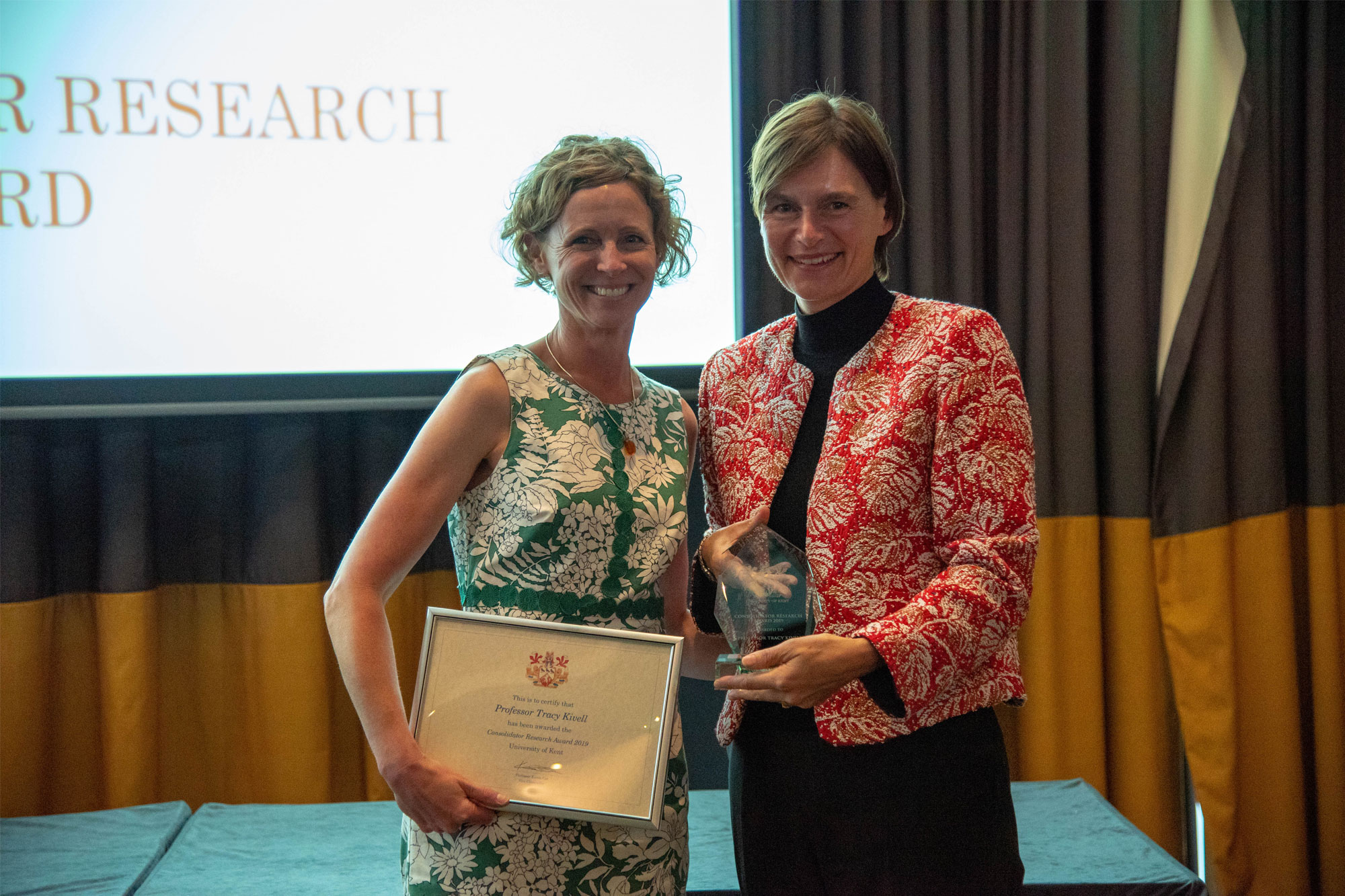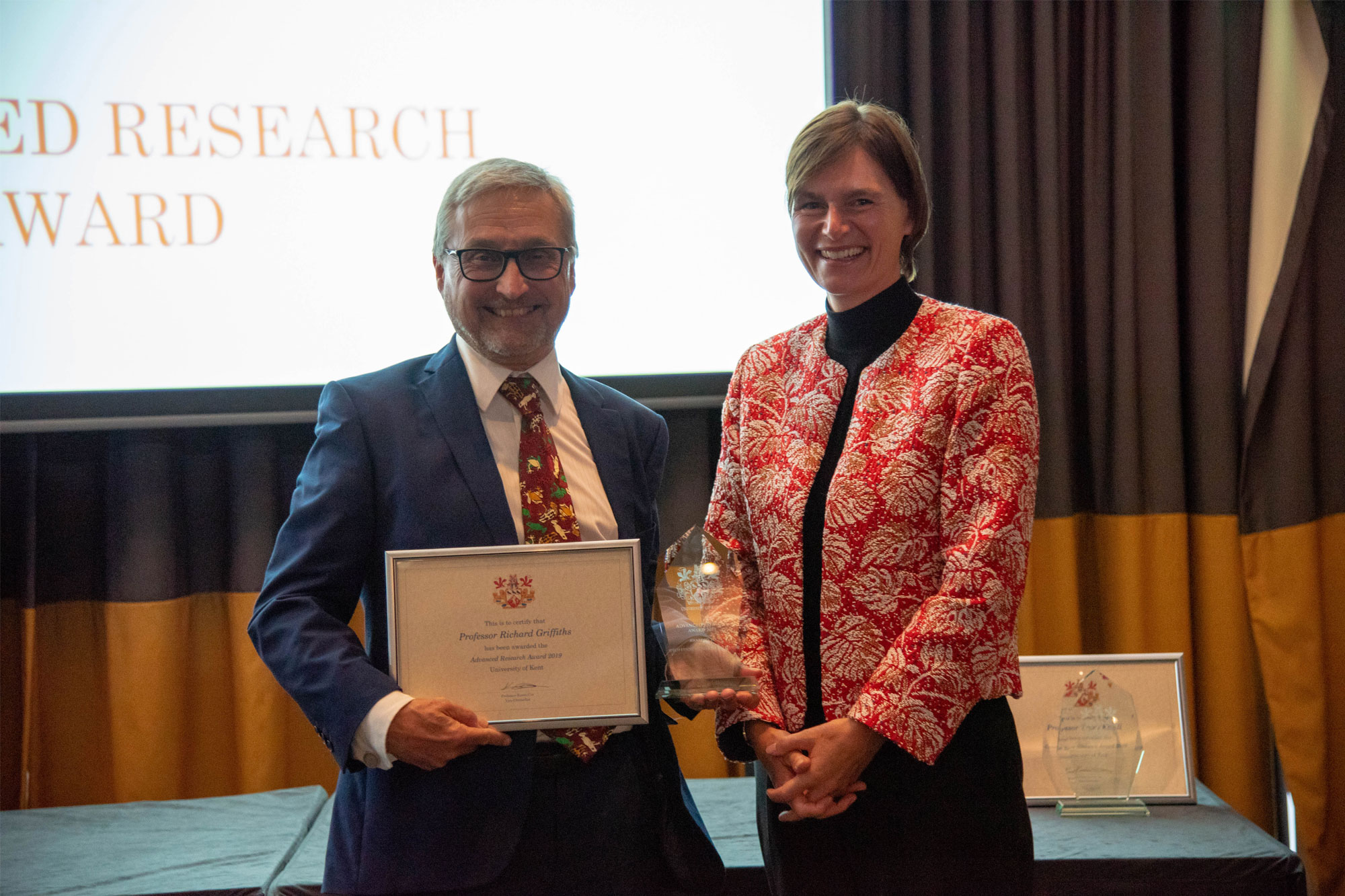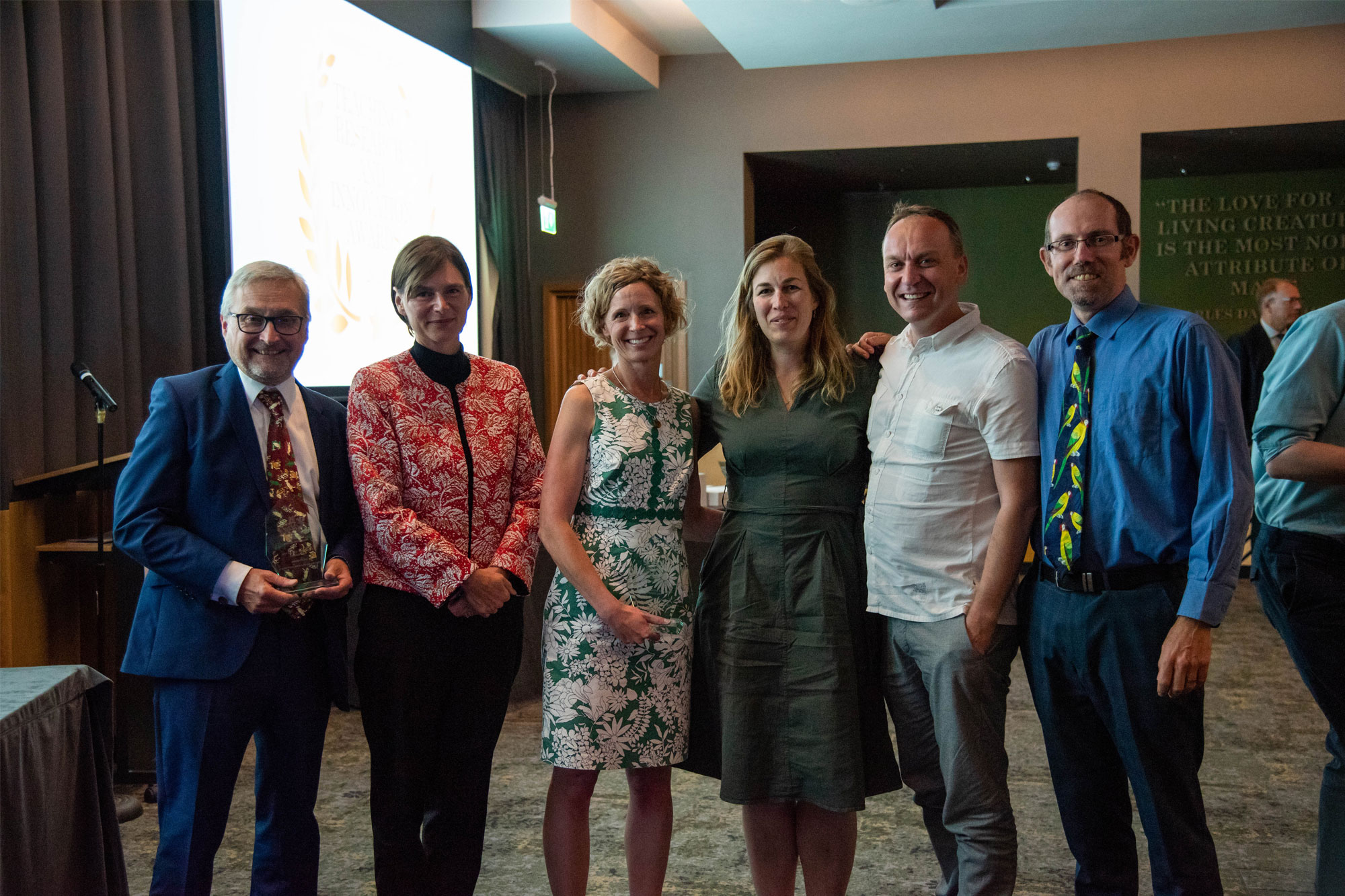Main image (left to right): Professor Richard Griffiths, Vice-Chancellor Professor Karen Cox, Professor Tracy Kivell, Dr Alexandra Leduc-Pagel, Dr Robert Fish and Head of School Professor Jim Groombridge.
Professor Tracy Kivell and Professor Richard Griffiths have been awarded the Consolidator Research Award and Advanced Research Award respectively in the University’s 2019 Research and Innovation Awards.
Professor Tracy Kivell – Consolidator Research Award

Professor Kivell was awarded in recognition of her work in reshaping our understanding of human evolution, supported by exceptional grants, publications, impact and public engagement.
Since joining the University in February 2013, Tracy’s research has reshaped our understanding of human evolution. In 2014, she founded the Animal Postcranial Evolution (APE) Laboratory and co-founded the Skeletal Biology Research Centre (SBRC).
Tracy won a €1.6m ERC grant that attracted a number of young researchers who have formed her research team, conducting research funded not only by the ERC, but also the Fyssen Foundation, Marie Sklodowska-Curie Actions and the British Academy. Her current international collaborations include: Max Planck Institute for Evolutionary Anthropology (Germany), Vienna University of Technology (Austria), Duke University and Chatham University (USA), University of Antwerp (Belgium), and the University of the Witwatersrand (South Africa). Her publication record is equally impressive. Tracy has published 62 papers in the 12 years that she has been a researcher, an impressive 50 of them stemming from Kent research since 2013, including in Science, Nature Communications and PNAS.
But beyond the publications, the grants, the lab, the research centre and the international collaborations, Tracy has pioneered impact and public engagement activities on the one hand, and an incredible sense of collegiality and leadership on the other. She is not only a top researcher: she is one of the most well-rounded.
Professor Richard Griffiths – Advanced Research Award

Professor Griffiths was awarded in recognition of his international work on population ecology and conservation biology through highly-cited publications and policy engagement.
Over the past 30 years, Richard has conducted research on population ecology and conservation biology across the world, with a particular emphasis on reptiles and amphibians. He has been involved in research and capacity building in countries as diverse as Tanzania, Zaire (now DRC), Spain, USA, Madagascar, the Seychelles, Bermuda, India, Brazil, Honduras, Chile and Mexico.
His work has been supported by almost £3m in research funding, from NERC, Defra, Natural England (formerly English Nature), the British Ecological Society, Esmée Fairbairn Foundation, Pond Conservation Trust, States of Jersey and the ARC Trust. However, the most remarkable funding successes are his seven biodiversity projects funded by the Defra/Dfid Darwin Initiative, which have helped make Kent the number one university to be funded by the scheme.
His 100+ publications have garnered over 5,000 citations, and he received the Most Cited Author Award (with collaborator T.J.C. Beebee) for a paper in Biological Conservation 2005-2008.
As well as his academic publications, Richard has also engaged actively with the non-academic sector and delivered eight commissioned reports, the most recent ones to Defra (2014, 2016), Natural England (2007) and the ‘Amphibian Conservation Action Plan’ for the International Union for Conservation of Nature (IUCN) based in Switzerland (2007).
Prior to his research, survey protocols for amphibians and reptiles had changed little for some 20 years, and were not science-based. Using statistical models, Richard produced recommendations that resolved how much effort was required to reliably detect whether a species was present or absent from a site. These protocols have now been adopted by a large number of organisations.
Elected as a Fellow of the Royal Society of Biology in 2014, he received in 2017 the prestigious Marsh Prize for Conservation Biology by the Zoological Society of London.

